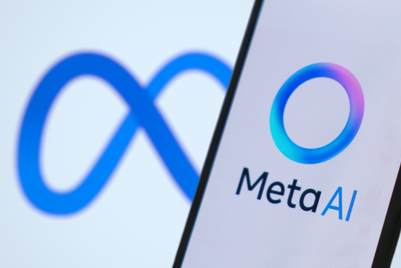.jpg&h=570&w=855&q=100&v=20250320&c=1)
Meta’s decision to abandon its independent fact-checking programme is a dangerous step backwards in the fight against online misinformation. With a combined user base of over 3 billion across Facebook, Instagram, and Threads, this move jeopardises the integrity of information shared on these platforms and poses a significant threat to brand safety. For agencies like ours, this demands an immediate reassessment of client strategies.
Established in 2016 to address growing concerns about the spread of false information, particularly during critical events like the 2016 US presidential election, Meta’s third-party fact-checking initiative was a crucial safeguard. Now, just seven years later, this protection is being dismantled.
Meta’s shift towards a ‘community notes’ model for content moderation is deeply concerning. While seemingly democratic in theory, community-based approaches have proven ineffective in practice.
Brands advertising on Meta platforms must now act decisively to protect their integrity. The reduced oversight dramatically increases the risk of ads appearing alongside misinformation, potentially damaging brand trust and consumer perception. Brands should implement rigorous ad placement controls, actively monitor their ad environments, and partner with ethical digital ad agencies or third-party technology providers that prioritise brand safety. Proactive management is essential to maintain consumer trust and uphold brand reputation in this increasingly volatile landscape.
The Washington Post’s 2022 report exposed the failure of X’s similar community notes feature to curb misinformation. If Meta follows the same path, its platforms risk becoming breeding grounds for falsehoods, conspiracy theories, and disinformation campaigns. This move appears more aligned with X’s ‘free speech’ absolutism than a well-considered strategy.
This change not only undermines the fight against online misinformation but also threatens the survival of independent fact-checking organisations. For years, Meta has been a crucial financial supporter of these entities, enabling them to verify claims and counter false narratives. By withdrawing funding, Meta jeopardises the sustainability of these organisations, many of which already operate on limited resources. Without adequate support, independent fact-checkers may struggle to maintain their operations, much less expand their reach to address the growing complexity of online disinformation.
Critics might argue that Meta’s move reflects a broader trend of reducing reliance on third-party entities to address content moderation challenges. However, the potential consequences cannot be understated. The unchecked spread of misinformation erodes public trust in institutions, deepens societal divisions, and can lead to real-world harm. From vaccine hesitancy to political polarisation, the dangers of false information are well documented, and abandoning effective mitigation strategies will only compound these issues.
In an era where truth itself often feels under siege, Meta’s decision represents a deeply concerning step backwards. From both personal and professional perspectives, I find this decision alarming. By prioritising cost-cutting or appeasing critics over upholding its responsibility to combat misinformation, Meta risks losing its credibility as a platform that values informed discourse. The fight against misinformation requires commitment and collaboration, not abdication. Meta must reconsider its decision and work to strengthen, not weaken, its role in promoting truth online.
This move has profound implications for brand safety and suitability and will be a central topic in our ongoing discussions with clients, both in pre- and post-campaign execution on Meta's platforms.
Danny Molyneux is the general manager of integrated growth agency Claxon.


.jpg&h=334&w=500&q=100&v=20250320&c=1)
.jpg&h=334&w=500&q=100&v=20250320&c=1)
.jpg&h=334&w=500&q=100&v=20250320&c=1)




.png&h=334&w=500&q=100&v=20250320&c=1)

.png&h=334&w=500&q=100&v=20250320&c=1)
.jpg&h=268&w=401&q=100&v=20250320&c=1)
.jpg&h=268&w=401&q=100&v=20250320&c=1)
.jpg&h=268&w=401&q=100&v=20250320&c=1)



.png&h=268&w=401&q=100&v=20250320&c=1)
